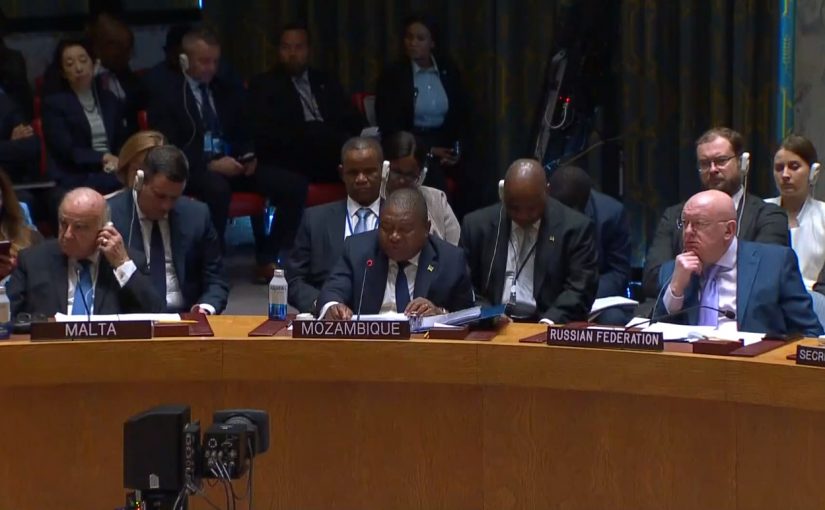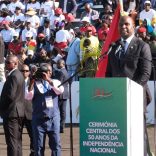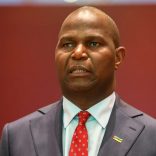Mozambique: Chapo urges Mozambicans to rethink the country
Cabo Delgado: An estimated 300,000 people returned to their places of origin – Watch

Screen grab: UN Web TV
Mozambique’s President Filipe Nyusi told the United Nations Security Council in New York on Tuesday that 300,000 people displaced by the conflict in Cabo Delgado have returned to their areas of origin, according to the latest estimates
“At the moment, it is estimated that, out of the 800,000 [displaced], about 300,000 people have returned to their places of origin due to the improved security situation in recent months,” the head of state said.
Filipe Nyusi was speaking at the Security Council’s high-level open debate entitled ‘Ensuring the Security and Dignity of Civilians in Conflict: Addressing Food Insecurity and Protecting Essential Services’.
Mozambique is a non-permanent member of the Security Council, a two-year term that began in January of this year.
The Mozambican president shared the country’s experiences surrounding the armed attacks by insurgents that have plagued Cabo Delgado province for five years.
According to estimates by the United Nations, which has several agencies on the ground in the north of Mozambique, the violence has displaced one million people, so the number of returnees cited yesterday by Filipe Nyusi represents close to a third of the total.
“The greatest concern of our government and our Defence and Security Forces has been the protection of the life and dignity of civilians, including the social re-insertion of captured terrorists or terrorists who deserted their ranks,” he explained.
President Nyusi presented the protection of civilians as an issue that is subject to “open and shared debate” in the country ,through a multi-sectoral commission comprising members of the government, United Nations agencies and other international and national non-governmental organizations.
In the case of Cabo Delgado, he also highlighted the involvement of large investors – in this case, linked to the oil and gas sector – in developing various actions, such as the revitalisation of agricultural activity to bolster food security.
Filipe Nyusi also highlighted other threats to the civilian population, namely due to climate change, to which Mozambique is vulnerable, appealing for the mobilization of “scientific, technological, human and financial resources to combat all types of threats”, including “the devastating impact of natural disasters stemming from climate change”.
Mozambique lies in the path of seasonal cyclones that regularly trigger storm surges and floods with casualties and widespread destruction of infrastructure.
The head of state reiterated his government’s commitment to peace, leaving one more appeal. “We call upon the Security Council to continue with efforts to achieve a cessation of hostilities in all conflicts that continue to claim human lives in the world, placing thousands of innocent civilians in the perpetual situation of extreme vulnerability. No one will be right if he or she cannot prevent the loss of human lives,” he concluded.












Leave a Reply
Be the First to Comment!
You must be logged in to post a comment.
You must be logged in to post a comment.